
Small time criminal Jamie Robery.
Hi guys. And girls. This is the notorious Alexander Baron, and I want to talk to you today about the real indeed the only solution to poverty. No, that is not my photograph, even I’m not that ugly. The unappealing fellow you can currently see on your screen is Jamie Robery. I came across him in April of last year, and he is indeed a very unappealing and unappetising human being. If you want to read a bit about him you will find a link to a story along with all the other relevant links in the transcript on my main website, but basically he is a small time criminal, a man of 33 – at that time – who has a record as long as your arm, as the saying goes.

What do you do with a man who is released from prison, and a month later is caught stealing a car radio? I mean, who would buy a stolen car radio in this day and age? Seriously. Robery is a member of the underclass, heck, he is even below the underclass. There are tens of thousands of men like him in the UK, and probably a few thousand women. Many of them end up serving a life sentence on the instalment plan, in and out of prison, time after time. The sentences get longer as the years go by, and that is understandable.
Why are there men like Robery, do they never learn? It’s easy to be judgemental about someone who is so much further down the food chain than yourself, especially if you’ve never been there. I have been there, or almost have. I won’t go into detail here, but if certain elements of the Metropolitan Police had had their way in 1997, I would have been in exactly the same boat as Jamie Robery, and quite likely dead by now. But as I said, that’s another story. What I want to talk to you about here is people like Robery, and people like these men and women.
These three are taken from a short video called Cardboard Stories: Homeless In Orlando



– and this is a tent city in modern day America.

Here is a small one from Camden, New Jersey.

And here is another from 2009.

That is not the full extent of the homeless problem. Families with young children tend to fair better, or maybe I should say less badly. Then there are people who are not homeless but trapped in poverty for one reason or another. What is the cause of this?
There is no single cause because homelessness and poverty are complex problems. There are some people living on the streets by choice who would still choose this lifestyle if they had a realistic way out of it. There are those who have what are called mental health issues, a blanket phrase that can mean they have serious illnesses such as schizophrenia, or it may be they have simply opted out.
For people trapped in poverty, there is one real cause, that is the lack of money. Quaint but true.
For most people between school age and retirement age, there are limited options for obtaining money. Leaving aside illegality, begging and so on, there is basically paid work and not much else. I include in that trading, ie buying and selling like the guy who runs your local corner shop. Trading on your own account requires capital investment, sometimes a substantial one, you may need to buy plant, furniture, rent office space and so on. Let’s go back to our friend Jamie Robery though. When a man is discharged from prison after serving a long sentence, the authorities will generally ensure he has somewhere to live and some sort of support; they may even find him a job.
A man who is released after serving a short sentence will have a discharge grant and maybe not much else. He may have literally his entire worldly possessions in a bag; maybe he will also be given a travel warrant and an address, a hostel where he may not even have his own room. And what employer in his right mind will employ a man who has such an appalling track record?

There are always exceptions, honourable or otherwise, like this bombastic, silver-tongued liar –


Is there a real alternative, one that can and will liberate the hardened recidivist from his life of crime, the homeless from the streets, and those trapped on the bottom rung of the ladder from a life of penury, misery, and food banks? Yes, there is, that is basic income,

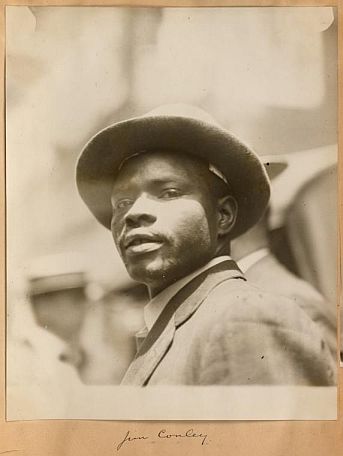
Jim Conley: a hundred years ago a man of his low estate could eke out a living of sorts pushing a broom.
In 1913, he was at the centre of an extremely controversial and high profile trial. To this day, many believe him to have been a murderer. Like the populist politician Tom Watson, I believe Conley to have been innocent, in spite of the bizarre story he told. I’m not interested in that case though, only in illustrating a point.
In 1913, Jim Conley was a semi-literate Negro in America’s Deep South. The previous year, he was sentenced to 30 days for fighting with another Negro; he had a number of previous convictions for similar offences, all of which had resulted in him being fined. At that time as a black man he would have been at best a second class citizen, a man of his lowly estate was a third class citizen. Yet he was able to eke out a living pushing a broom, his vices – such as they were – were gambling and beer.
Today, a man like Conley would be consigned to the scrap heap, again with the caveats of family support and special circumstances. The reason for this is that most of those unskilled jobs have now gone. There are still some; by and large it doesn’t take a great deal of skill to serve in a shop all day; there are still men sweeping the streets, and carting away our garbage, but these are the exception rather than the rule, and as automation increases, more and more unskilled jobs are destroyed. Increasingly, more and more food is produced by fewer and fewer people, and likewise consumer goods. I’ ll give you two examples of this, one of each.
In this country, the Heinz company produces a million and a half cans of baked beans every day. When tinned food was introduced, cans were sealed by hand. It was a skilled job, and a craftsman could seal maybe six an hour.

This is a memory stick.

You can find some terrific bargains on Ebay, but even if you would pay a lot more in your local computer shop, compare that with this. Remember the old-fashioned floppy disk? The small blue one shown here came in two densities, 720Kb and 1.44Mb. Yes, I did say kilobytes and megabytes. In the early 1990s you would pay maybe a pound for a 720k floppy, and it was a fragile medium too. If you’re not as ancient as me, ask your parents, and they’ll confirm that what I say is true.

There have been smaller though equally impressive increases in food production over the past hundred and more years, and in other fields. We may complain about food prices and such, but in reality food has never been cheaper. The real money is now in services. A solicitor’s letter will cost you probably 150, £200 at least. You could spend less than that on food in a month and still eat well.
Cheap food and even cheaper technology are good things, but because of the current set up of the financial system, they cause problems. If people can’t earn a living, either they become trapped on benefits – welfare in the US – or they end up homeless, and in some cases in and out of gaol, it’s a vicious circle. There have been and are initiatives to help those at the bottom of society, but they are all blinded by what we might call an outdated Protestant work ethic.

The unemployed need training, they say, so they are sent on training courses, and penalised if they don’t comply. But what about the unemployables of this world? The reality is that even they can do some productive work, but few of them can earn a meaningful living because as I said earlier, no employer in his right mind would employ them, not at a living wage.

Basic income would solve this problem because it would destroy the poverty trap into which most of those on the bottom rung of the ladder fall. So how would it work?
The bottom line is that basic income is paid to every citizen, including billionaires. There could be a proviso for the wealthy to opt out for say 3 months or a year at a time, and a public register of such, but basic income would be paid across the board with no means-testing and no qualification except citizenship. How would it be funded? I’m not a great fan of rap, but let me quote 2Pac here:
“They got money for wars
But can’t feed the poor...”
They’ve also got money for the banks. In three and a half years beginning March 2009, the Bank Of England created £375 billion through its Quantitative Easing programme, and gave it to the banks.
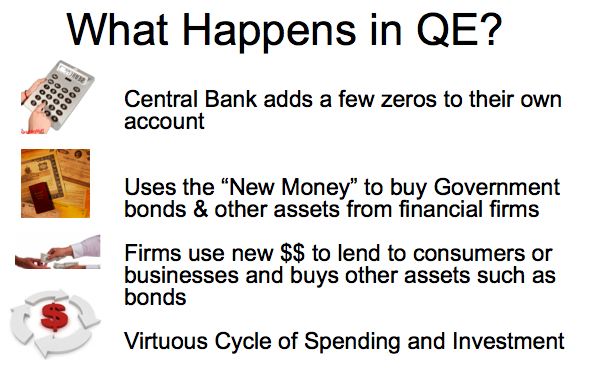
We’ve also seen bailouts – on both sides of the Atlantic – as the man said, money for wars. If the Government can find money for the banks and money for wars, it can find money for basic income. There would be serious upsides to this, because basic income would destroy the poverty trap.
On October 15, Lord Freud caused a furore by claiming that some disabled people were not worth the minimum wage, that maybe they should be paid £2 an hour. He may have been a little insensitive, but he was not wrong. The minimum wage is one of these ostensibly well-meaning measures that causes far more harm than good. For one thing, it ties up businesses with red tape; for another, it destroys real jobs. (1)
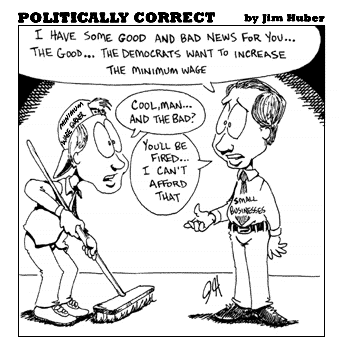
However, if people are paid basic income, those poverty pay jobs don’t look so bad at all.

So why doesn’t the Government even consider basic income? Broadly speaking there are two reasons, one is the vast majority of politicians haven’t a clue, for them, full employment – so-called – is desirable or even necessary.
The main objection though is a pseudo-moral objection, they don’t like the idea that people should get something for nothing. Well, not people per se, other people, people outside their charmed circle, in particular the great unwashed.

They don’t mind living off unearned income themselves, nor do they mind creating money for the banks through QE. Nor do they mind taking up lucrative directorships, especially when they leave office

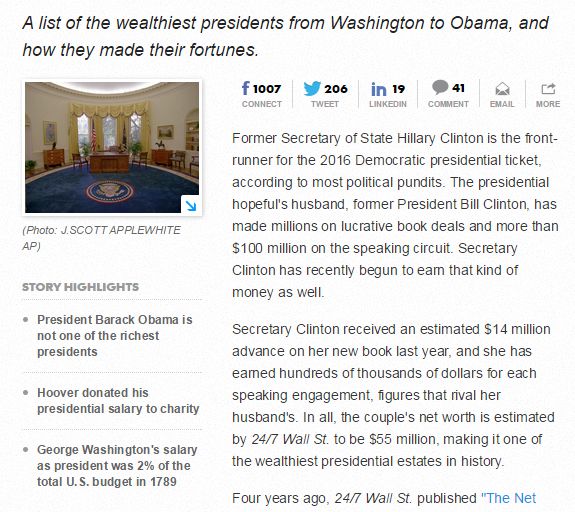
The great irony is that many of these self-styled intellectuals who think this sort of thing is a good idea are themselves the beneficiaries of either state or private largesse. Take this woman, Vicky Pryce. You may recognise her, she served a short prison sentence as the instigator of a ludicrous, grubby little conspiracy to exact revenge on her ex-husband, one that in the process also destroyed the career of her now former friend Constance Briscoe. She walked out of prison to publish a book and to take a post as a government advisor, would you believe? She works as an economist, if works is the right word.

There are people who are similarly working for think tanks and as analysts, economists and the like for the big financial institutions where their work consists of trying to second guess the market, like these men. These are hedge fund managers, and all they do day in day out is gamble.
They produce no wealth at all, this is strictly a zero-sum game, because if one of them buys at a profit, someone else sells at a loss.

Then there are all manner of people in our universities spreading propaganda rather than teaching students, indoctrinating especially women with the ludicrous patriarchy theory, and similar garbage.

If society can afford hedge fund managers, financial analysts so-called, feminist academics, and most of all war, it can afford basic income.
Could every country afford basic income? No, wealthy and relatively wealthy countries like the UK can, those that are primarily service based and/or have a strong manufacturing base. In practice this means the UK, Western Europe, the US and Canada, Australia and New Zealand, Japan, South though not North Korea, definitely Saudi Arabia, Qatar and the like, and for reasons that need no explaining, the Cayman Islands and such.
The United States could probably instigate basic income in short order if the looting of the country by the Federal Reserve were curtailed and that money were diverted to where it is needed. When I say looting, I mean on an unprecedented scale, as Congressman Alan Grayson revealed in 2009.

Most of Africa would most definitely not be able to afford basic income, but there are other things Africa needs more urgently, in particular technology, and lots of it. Over the next decade and more, that problem will be solved, if we can direct investment to where it is needed, instead of into wars and the like.
Solar energy is cheap and abundant, no more so than in Africa. Then there is 3-D printing, which will revolutionise all our lives. And if you haven’t seen this before, it is a reprap, a machine that can replicate itself.

Finally, this is an aquaponics kit for producing local, sustainable food. This is a small one –

but they come in all sizes. This is a guy called Nelson Mmbando who is doing great things in Tanzania.


I mentioned war; I don’t want to go into this in any depth here, but the application of basic income will remove one of the major causes of war. This is because a shortage of purchasing power in the home market leads to manufacturers exporting their products for which they receive...bits of paper. Obviously, not everyone can export, (2) and this defect in the financial system can lead to trade wars and eventually to real ones. Check the relevant link and read what the great man himself said, Major Douglas.
Are there alternatives to basic income, I hear some of you ask? The bottom line is no. Don’t be fooled by the rhetoric of the left, socialism, workers’ control, workers’ power and all that jazz. Command economies cannot deliver the goods. The minimum wage is part and parcel of this nonsense. Incidentally, here is how the Lord Freud furore played out in the House Of Commons.

Once again, the minimum wage is not the solution to this non-problem. There are all manner of creative solutions proposed such as subsidising employers to take on the disabled. Again, they simply hate seeing people get “something for nothing”, except their kind of people, of course.
The most ludicrous solution ever was proposed in 1933 by a bloke who like our great leader Call Me Dave was educated at Eton. At the time of the so-called Great Depression, Gilbert Frankau said:
“A war would be a great idea”, he continued “Another war would give our three million unemployed ample employment.
I would suggest conscription for this country. It would be immensely popular.” (3)

He got his wish. Anyone think the Second World War was a good thing? Or the First World War?
There is one thing you should note though, during war-time the laws of economics are miraculously suspended (4) – something that never happens with the laws of Nature – and goods and services are materialised as if out of thin air. There is not much in the way of consumer goods, unless you count bombs and bullets as consumer goods. Capital goods are created, and then destroyed. This is a process that can and does go on for years; if we can afford wars, we can afford basic income, indeed, how can we not afford it?

A recent article in the International Business Times reported as follows:
Robots Will Create ‘Permanently Unemployable Underclass’
The article quotes the software developer Karl Fogel: “We’ re going to have to come to grips with a long-term unemployment crisis and the fact that – strictly from an economic point of view, not a moral point of view – there are more ‘surplus humans’ ...”
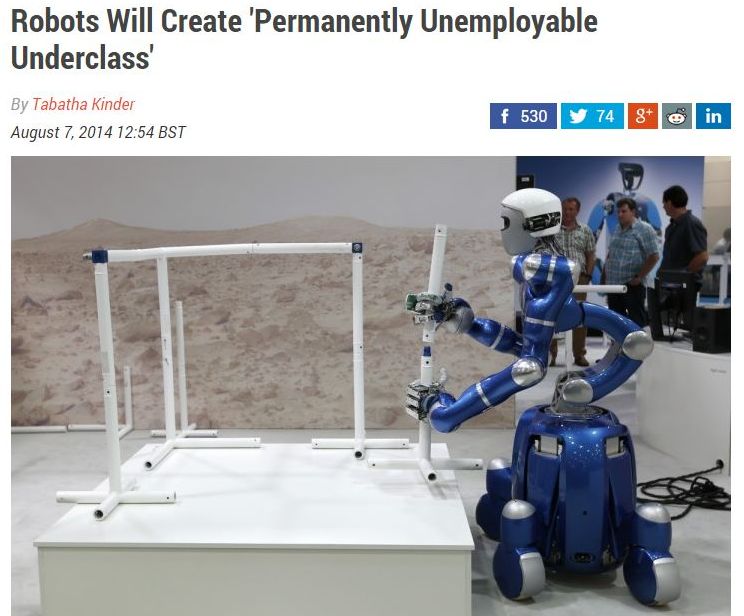
Surplus humans, surplus to what? And what crisis might that be? There is no unemployment crisis. How many unemployed millionaires do you know? The major economic problem we face is the distribution of purchasing power, not unemployment, not making work for the sake of it.
The solution is one that has been staring us in the face for longer than anyone now alive can remember; as I pointed out earlier, basic income has a long history – or at least the theory of it does. The question that is probably on the tip of your tongue is why if basic income is such a great idea has it not been implemented long ago? There have been sporadic attempts to implement it, including in Canada, but like the war on drugs, the war on terror, and many other things in the modern world, there are powerful vested interests opposing it. Incredibly, a lot of this opposition comes from organised labour, and those who side with organised labour for their own sinister reasons; there is a word for this, one you may have heard: Luddism. The original Luddites smashed machinery because they were afraid of “losing their jobs” in modern parlance.
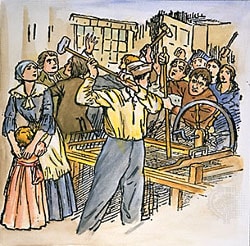
We saw an outbreak of this in the Wapping dispute of the 1980s when that most hated of capitalists Rupert Murdoch took on the might of the print unions and moved his operations from Fleet Street to the East End of London. The vitriol directed at Murdoch by especially the lemmings of the Socialist Workers Party was a wonder to behold, but look at his business empire today. If the unions had defeated him, and if more generally the Luddites had won, newspapers would still be produced by the old-fashioned methods – so-called Spanish practices – and you wouldn’t be watching this video, because there would be no Internet. Future generations will regard Rupert Murdoch as a visionary, whatever his politics.

In addition to the Luddites there are the social parasites, these are not the unemployed, so-called, but the hedge fund managers I mentioned earlier, the economists, the banksters generally, and at the other end of the spectrum, the endless legion of social workers and the like who make a living keeping the underclass in their place. These are the same people who looked the other way while hundreds of under age girls were exploited by sexual predators in Rotherham and elsewhere.
There is one other issue I should cover, this is the attempt by the usual suspects to racialise this problem. In the United States especially there is a large black underclass. The perceived wisdom, which is demonstrably false, is that this underclass is held down by something called racism.

How this chimera works or is said to work is a wonder to behold. The reality is that there are no racial barriers to black achievement; traditionally American blacks have excelled in the fields of music and more generally entertainment, sports, and to some degree, business.

Doubtless you’ve heard of Oprah Winfrey, but you will probably not have heard of this woman: Madam C.J. Walker.
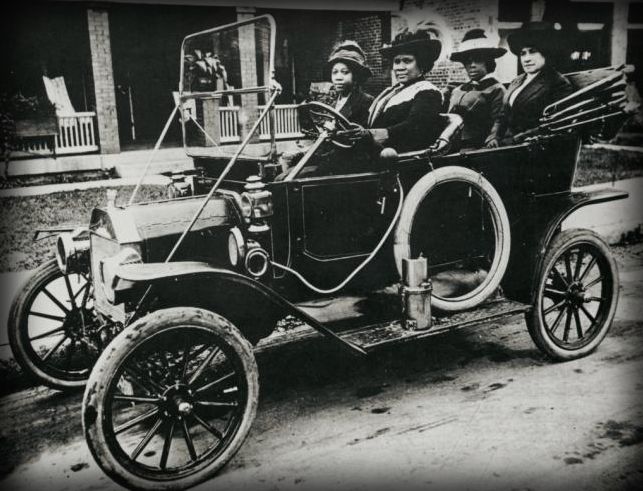
Since desegregation, there have been a number of initiatives to reduce urban poverty among American blacks, and they have all failed spectacularly, because they are tackling the wrong problem. So-called affirmative action has done little or nothing for the people at the bottom. We hear the same sort of rhetoric from “wimmin’s rights” activists, about sexism in the boardroom and facetious claims about the imaginary [gender] pay gap.
Here is one of my favourite anecdotes about this nonsense, this is from the front page of the Evening Standard (WEST END FINAL), June 19, 2002. This story was actually widely reported. A woman named Julie Bower sued her employer Schroder Securities for sexual discrimination. She was set to receive a payout of £1.4 million. She had been earning £120,000 a year – that was in 1999 – so factor in inflation. One of her complaints was that she had received a “lousy” £25,000 annual bonus, which was substantially less than that of her male colleagues. She was also married, so two income household...she was living the dream, yet she wanted more.
This case was also reported by the BBC; it was one of those non-stories that ran and ran, here is what the Beeb said on April 10, 2001.

The woman who works the morning shift in my local launderette is over seventy; she does that for the benefit of her grandchildren. What do you think she’d have said to a £25,000 bonus? What does anti-sex discrimination legislation do for her? What good does affirmative action do for these urban youth?


Julie Bower and all her kind are parasites; they produce nothing, they create no real wealth, all they do is shuffle money around. Like I said, it’s a zero-sum game. I’m not saying you or I would be any different, because that is human nature. It’s the system that has to be changed. Replacing the white men at the top with black men, or Jews with Gentiles, or replacing men with women, doesn’t help the people at the bottom.

Nor do you make the poor richer by making the rich poorer, the problem is not capitalism, racism or any of these other isms. The problem is a financial system, that creates credit out of thin air and gives it to the banks, which then sell that credit to everyone else, including the government. That’s why taxation is so high.
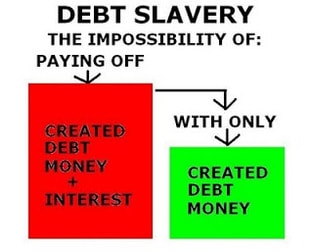
Basic income will disarm the banks and distribute purchasing power to those who most need it. And who deserve it. It will also eliminate the poverty trap. What will this result in? For social justice warriors, it will bring about social justice of sorts. Less bureaucracy, which means it will pay for itself in large part. Less poverty, which will mean less crime in particular burglaries and property crimes generally. Less street crime, which can of course be violent. For especially young women who are tempted or lured into selling their bodies at the bottom end of the market, it will provide a real alternative.

There will be all sorts of other spin offs too, the elimination of poverty will mean less illness, physical and otherwise, and reducing the burden on all manner of government services.
Eliminating the poverty trap will also stimulate the economy, because those jobs at low or poverty pay will be transformed. And the people who built the Internet, and are at the moment developing self-driving cars, robots, new forms of cheap, clean energy, and new food production techniques, will be free to concentrate on taking Mankind from an age in which there is poverty amidst plenty to one in which there is livelihood, wealth and leisure for all.

(1) There is a voluminous literature on the follies of the minimum wage, mostly from a Libertarian perspective. One of my own articles on it can be found here, while a short video can be found here.
(2) In theory, all nations can export, but under the current régime they cannot all export more than they import. Again, see Who the Dickens was Major Douglas? and if you are interested, check out his works, in particular Social Credit and The Monopoly Of Credit.
(3) MR. FRANKAU, PHILOSOPHER “DEAR, SENTIMENTAL ENGLISH”, published in the Daily Express, March 24, 1933, page 2. This is one of my all time favourite quotes.
(4) As Professor Quigley pointed out in Tragedy & Hope... See also Can’t pay, won’t pay – a lesson in Greek economics and Governments And Money: The One Big And Two Small Exceptions.
To Video Of The Case For Basic Income
Back To Baron Speeches Index
Back To Site Index